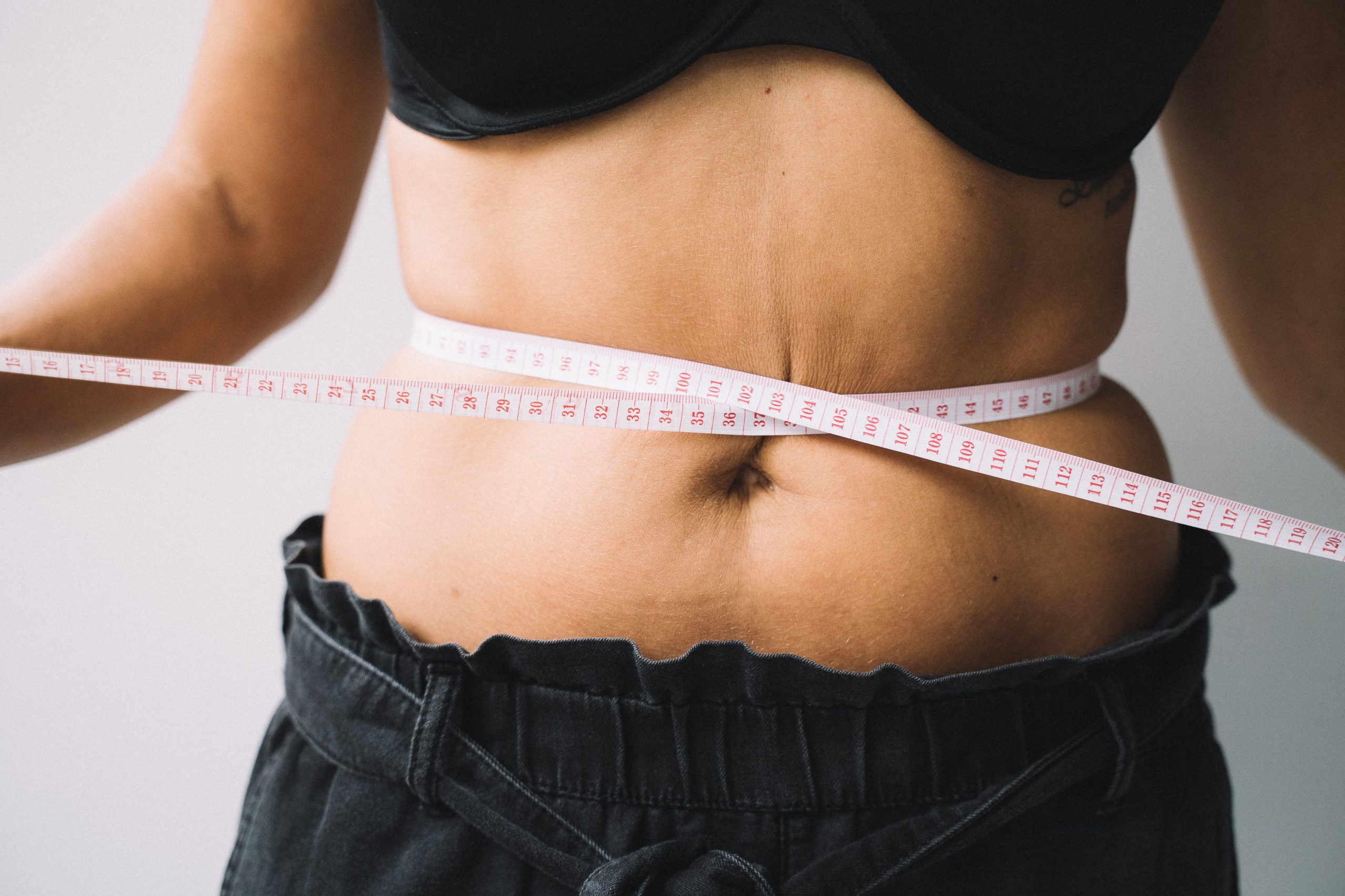Fat loss can be achieved through a combination of a healthy diet, regular exercise, and lifestyle changes. It’s by no means an easy process and fat loss is never a linear journey but here are some top tips to help you get started:
Focus on nutrition
To lose fat, you need to consume fewer calories than your body burns. Calculate your daily caloric needs and aim for a moderate calorie deficit, usually 300-500 calories below maintenance level. You can either use an online calorie calculator or use a rough rule of thumb. If you currently weigh under 70kg go for 1600kcal per day and over 70kg aim for 1800kcal per day. Men will need more. Track your weight for 4 weeks. If it’s not moving then drop your calories by 100.
Focus on whole, nutrient-dense foods such as vegetables, fruits, lean proteins, whole grains, and healthy fats. Avoid or limit processed foods, sugary drinks, and excessive added sugars. You don’t need to exclude foods that you enjoy you just need to be mindful of whether it fits into your daily calorie allowance. High fat/sugary foods are easier to overeat as they tend to be less filling.
Be mindful of portion sizes. Even nutritious foods can contribute to weight gain if consumed in large quantities.
Drink plenty of water throughout the day. Sometimes, thirst can be mistaken for hunger, leading to unnecessary snacking.
Protein helps keep you feeling full and satisfied while preserving lean muscle mass during weight loss. High protein, low calorie snacks such as greek yogurt or cottage cheese will keep you satisfied until your next meal.
If you have a well balanced dinner early evening you should be able to avoid snacking in the evening due to hunger. If snacking is due to non hunger factors such as boredom then try to find ways to distract yourself from the kitchen cupboards
Incorporate different forms of exercise
Resistance training can help build lean muscle, which can boost your metabolism and aid in fat loss. It will also give you that “toned” look to your body.
Engage in regular aerobic activities such as walking, jogging, cycling, or swimming to burn calories and improve cardiovascular health. However don’t fall into the trap of thinking “I’ve burnt x amount of calories so I can eat this pizza, cupcake, bar of chocolate etc. We tend to overestimate our calorie expenditure and underestimate our calorie intake leading to weight plateauing or even weight gain.
Aim for 7000-10000 steps per day. Your NEAT activity levels (any physical activity which isn’t structured exercise) usually contributes towards burning more calories in a day than a gym session. So try to get as many steps in as you can.
Other factors
Lack of sleep can negatively impact weight loss efforts by affecting hormones that regulate hunger and satiety. Aim for 7-9 hours of quality sleep each night.
Chronic stress can lead to emotional eating and hinder fat loss. Find healthy ways to manage stress, such as meditation, yoga, hobbies or getting outside.
And finally…
Fat loss takes time and dedication. Stick to your plan and be patient with yourself. If you are really struggling then find a qualified nutritionist/professional who can help.
Enlist the help of a friend, family member, or professional for accountability and encouragement.
Rapid weight loss diets often lead to muscle loss and can be unsustainable. Focus on making gradual, long-term lifestyle changes.
Remember that everyone’s body is unique, so what works for one person may not work for another. It’s essential to find an approach that fits your individual preferences, needs, and goals. If you are going to follow a particular diet do your research first so you know the pros and cons. Always consult with a healthcare professional before making significant changes to your diet or exercise routine especially if you have underlying health conditions.


Leave A Comment